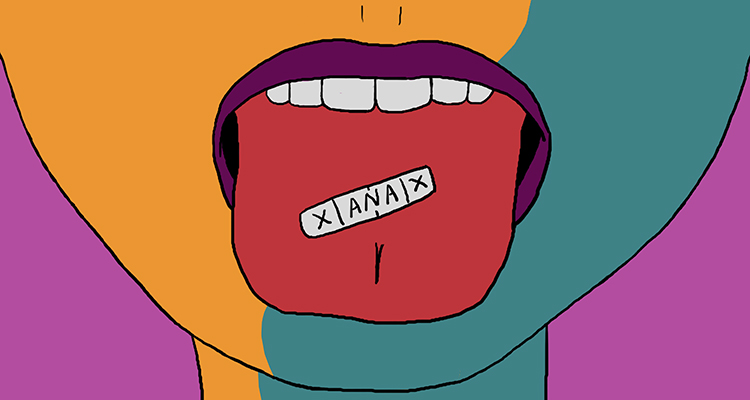It may seem that millennials have a more laissez-faire attitude when it comes to recreational drugs compared to their parents. But in all honesty, we’re just as lost as previous generations, or even more so.
We have been told since we were in elementary school that drugs are bad and were forced to sit through D.A.R.E programs that became a joke by the time high school rolled around. Baby booming parents that said drugs would ruin our lives seemed hypocritical since although lived through the years when cocaine was as casual as Kombucha.
Not to mention, our parents didn’t have rapid information to process at their fingertips at all times. It could be due to the rise in depression among our generation. Maybe it is that an occasional escape from reality is enticing, or maybe we’re just bored because all we know is instant gratification.
Walk into any downtown house party on the weekend and there is a good chance that there will be remnants of cocaine left on the bathroom sink or a group of kids on molly surrounding the DJ. Most of these users are college students who attend their classes during the week and are looking to let loose on their days off.
Maybe drugs don’t ruin lives. A lot of users may just be looking for something more than the moving through the motions like we have been taught by society our entire lives.
This is not to say mind altering substances are the answer to boredom or any way condoning recreational drug use. The long-term health effects are dangerous and should be taken seriously. But maybe identifying why people use can help solve the casual party drug culture epidemic.
Millennials are not only in constant interaction with each other but are consistently fed information from around the world. The constant stimulation in everyday life could be why some feel the need to fill their free time with even more stimulation.
Or maybe the casual drug culture is simply a way of dealing with the pain. Rates of depression are soaring among millennials in college. A 2012 study by the American College Counseling Association reported a 16 percent increase in mental-health visits since 2000 and a significant increase in crisis response over the past five years.
According to recent studies, 44 percent of college students experienced symptoms of depression, and suicide is one of the leading causes of death among college students.
Self-medicating could be the solution that some think they need, especially if all of their friends are doing it casually. Peer pressure is something that most college students would like to have left behind in college, but it actually gets worse.
Between getting good grades and maintaining a social image while ensuring a successful future, there isn’t much room for liberation. There are millions of healthy alternatives to drugs that will help with stress, but maybe the need for a mental vacation is greater than we think.
The problem isn’t recreational drug use among millennials. It’s the reasons that they are resorting to them. Whether it’s a need to fill gaps between stimulation or just a problem with people abusing substances to negate stress, traditional methods like D.A.R.E. and other programs just aren’t working.
Instead of wasting time on trying old and outdated methods, people should be exploring the reasons why teens are doing the drugs. Connecting better with Millenials is going to be the first step in understanding why younger people are getting hooked on drugs.
Nicole Henson can be reached at opinioneditor@theorion.com or @TheOrion_News on Twitter.






Marianne // May 10, 2017 at 8:08 am
I can’t believe you published this horribly innacurate article. There ARE resources on campus actively fighting drug abuse in healthy and effective ways (CADEC, Counseling Center, SHC). I agree with Jack, diagnoses are getting better not to mention stigma is decreasing and more people are willing and able to recognize symptoms in themeselves and others and get help. I think you need to be fired from this paper for your inaccurate writing.
Jack F. // May 1, 2017 at 9:24 am
19% of millennials report depression compared to 14% of Gen-Xers. If you look at the stats, every generation reports depression and anxiety more frequently than the one before. It’s easy to see why this is. Diagnoses have been getting better and better, while the stigma surrounding mental illness has been steadily eroding. I don’t think there is clear evidence that millennials are THE MOST STRESSED OUT GENERATION EVER. While I can see that you’re trying to explain the reason for drug use in our generation, your explanations just don’t stand up to scrutiny.
Not to mention sentences like “Maybe drugs don’t ruin lives” (They most certainly do) that sound an awful lot like justifying drug use. “Baby booming parents that said drugs would ruin our lives seemed hypocritical since although lived through the years when cocaine was as casual as Kombucha.” Am I a hypocrite for being anti-drug while also living in Shasta County and observing the meth epidemic? Of course not — if anything, watching the tragedies unfolding on the streets around me makes me want to combat drug addiction more.
Depression is not endemic to our generation, and people from all walks of life suffer from mental illness and struggle with self-medicating. Trying to explain the causes using faulty reasoning is not as important as actively discouraging drug use and being honest about its effects.